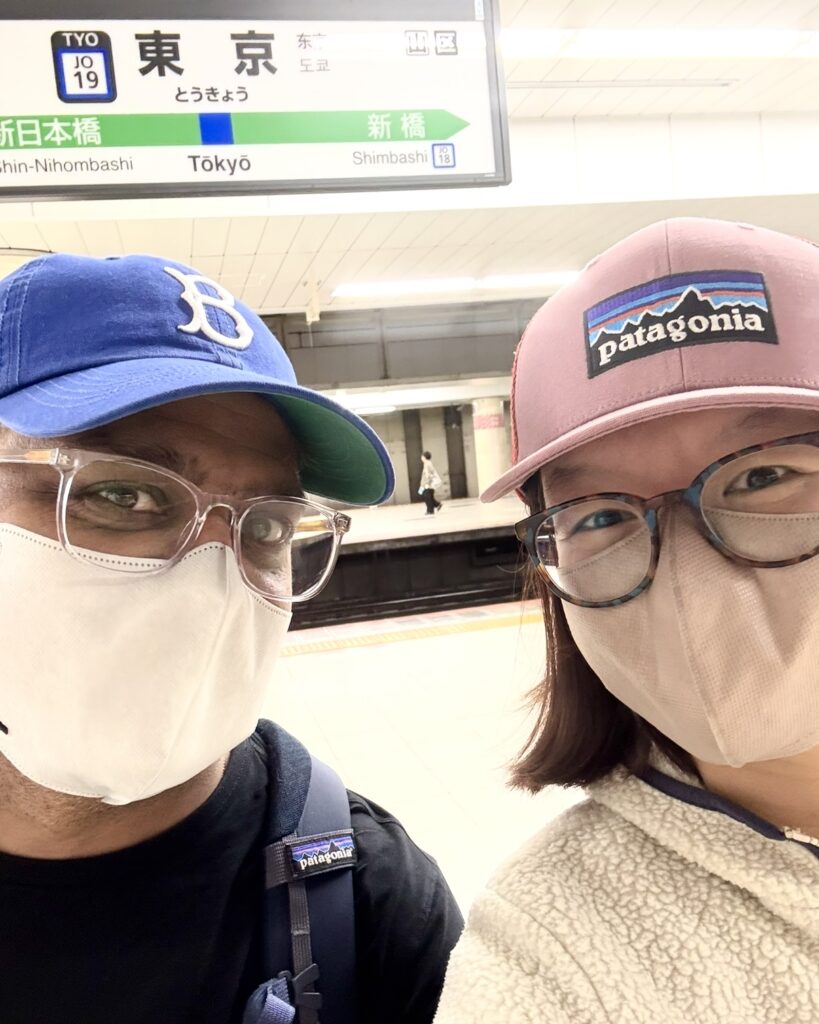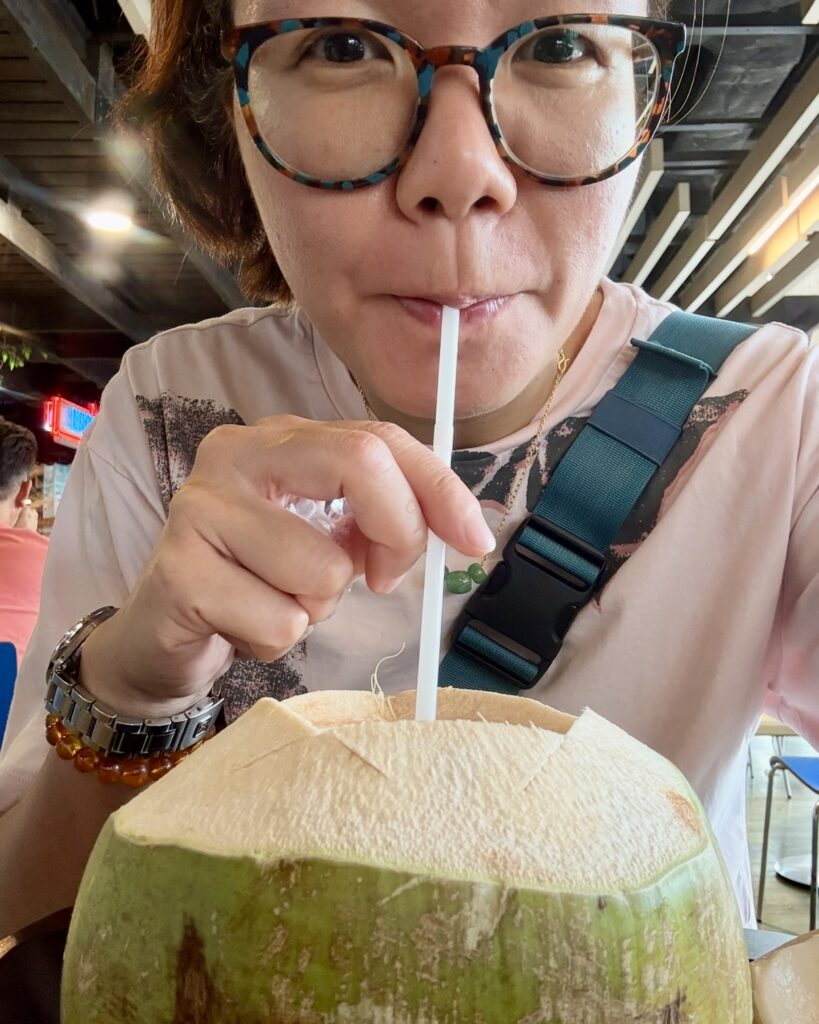Turns out the best compliment abroad is being mistaken for a local.
Everywhere we go, people assume we’re locals. And we take pride in it.
This summer in Crested Butte, a couple seated next to us at dinner asked how long we’ve lived in town. (And if R owned the bookstore, which made me laugh — because Arvin, the actual bookstore owner, is also a brown man.)
Last winter in San Diego, people at Dog Beach asked if we lived in the neighborhood or if we had to drive to the beach.
Anytime we’re in Maui, people ask us for directions or recommendations on where to eat or snorkel.
It happens so often that we’ve stopped being surprised. We get it, we can blend in almost anywhere. But on our recent trip to Thailand and Japan, the feeling of being local took on a different weight. There, blending in wasn’t just about familiarity or ease; it was about perspective, humility, and realizing how much being “American” stands out overseas… even when you wish it didn’t. Especially in these times.

We noticed quickly how easy it was to spot the Americans. Not just by accent, but by volume, by the way they (we…) occupied space. There’s a kind of cultural footprint that follows Americans: the loud confidence, the need to be accommodated, the assumption that English will get us anywhere. And because R and I never want to be this kind of stereotypical American (it’s embarrassing af!), we found ourselves softening our voices, overcompensating with extra politeness, and hoping everyone assumed we were Canadian or Australian. In our hotel lobby in Tokyo, we witnessed a group of people getting frustrated by the language barrier, and they loudly complained to one another about it. We shook our heads and muttered to each other, “The staff probably hates American tourists.”
When people asked where we were from, I hesitated. (And then we said New York, ha! I feel like that makes it a little better.) It wasn’t shame so much as awareness, the kind that shifts between self-consciousness and reflection.
Then there were the other moments that felt like a compliment. When a hostess in Tokyo spoke to me in Japanese, after speaking to two other parties in English. When cab drivers in Bangkok tried striking up conversation with me in Thai. When I blended in just enough to be mistaken for someone who belonged. Those moments weren’t about pretending; they were about moving gently enough through a place so people didn’t brace against my harsh American presence.

I realized that sense of blending in feels good not because we’re “passing,” but because we’re paying attention. We’re trying to be respectful and assimilate into the communities so graciously hosting us. Blending in isn’t about hiding; it’s about respect. It’s about noticing the rhythm of a place before trying to sync with it. It’s about curiosity instead of dominance, listening instead of leading. I caught myself shushing myself on the Tokyo Metro, where train passengers ride in silence (or, at most, whispers) to their destinations. I happily said “sawadee kha!” (hello) with a Thai smile to everyone, even after leaving Thailand. We caught on that everyone walks on the left side in Tokyo, so we trained ourselves to do so as well. We noticed everyone said “khop khun kha” (or “khop khun krahp”, thank you) to us with their hands together, so we made it a habit to do the same.

And maybe that’s why I love travel so much. It reminds me that identity isn’t fixed — it expands, contracts, and blurs at the edges depending on where you are and how open you’re willing to be. We pick up new vocabulary and habits along the way, adapting to the norms of wherever we are in the world.
It’s a humbling, humanizing practice in perspective — a reminder that wherever you go, the desire to belong is universal.
Leave a Reply